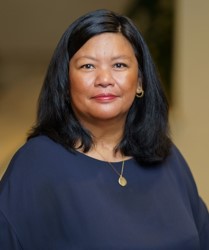Our work at GCIR is grounded in the belief that affecting transformative change in support of immigrants, migrants, and refugees includes combating the international systems of oppression that drive the displacement, exploitation, and oppression of those communities. In recent years, we have borne witness to the myriad ways in which systems of racial capitalism, militarism, and authoritarianism (among others) have forcibly displaced communities in places as diverse as Afghanistan, Congo, Haiti, Sudan, Ukraine, and beyond. The present dispossession of Palestinian communities is, once again, bringing forced displacement into full view.
We know from our own nation’s history that forced displacement begets both present and generational trauma, harm, and violence. What we are experiencing now, including:
- widespread discrimination and violence, especially heightened Islamophobia and anti-Semitism
- growing disinformation from government and media outlets
- state censorship of free speech (and growing intimidation against private speech)
- increased threats to the safety and security of immigrant, migrant, and refugee communities
are responses to – and the conditions that make possible – forced migration. And – if we were not living in a time when history is devalued, discounted, and distorted – we would know that these conditions recur repeatedly. But it does not mean that we must accept the inevitability of those conditions.
It is our collective responsibility to fight for a different present and ensure a better future. We are heartened by the diverse set of stakeholders who are advocating for adherence to international humanitarian and human rights laws by all parties, including the safe release of all Israeli civilians taken hostage as well as of all Palestinians who have been unlawfully detained. And we must also make possible a future when people can choose to move and be welcomed, with a right to safe and just migration.
Philanthropy has an important role to play in addressing forced displacement and the systems that drive it. At the same time, philanthropy must act now to secure the safety and dignity not only of those who are forcibly displaced but also of those communities who experience violence and discrimination because they have been othered, marginalized, and oppressed. More than 20 years later, Black, Arab, Middle Eastern, Muslim, and South Asian (BAMEMSA) and immigrant communities across the country are still targeted by post-9/11 government profiling, xenophobic public narratives, and attacks on civil liberties. We can do better.
Any investment made should support long-term work that builds sustainable power and infrastructure. As a starting point, we call on funders to invest in long-term safety and security work for targeted communities and to address Islamophobia, anti-Semitism, xenophobia, and other acts of violence. This includes funding robust safety work to protect community leaders and frontline activists from doxxing and ongoing physical and digital threats, such as
- public narrative/media training to both respond to the onslaught of media requests and to challenge disinformation;
- legal protections for leaders (and students/young people) who are being targeted for their advocacy; and
- know-your-rights trainings for participants in public demonstrations or in case of law enforcement abuse.
To that end, GCIR, alongside other philanthropic organizations, will host a webinar in the new year on strategies for supporting this much needed safety and security work.
Funders should also invest in building the narrative power of communities suffering from forced displacement. People have the right to author their own experience, and narrative power is about building agency and self-determination. GCIR has made narrative work one of its central strategies and a 2024 priority, because we know that narrative power is a solution to addressing root causes. We have hosted a handful of programs on narrative in the past year, including last June’s “Narrative Change: Inspiring a Vision and Protecting the Freedoms to Move and Stay,” and we are hosting a webinar on December 12th on “Strategies and Tactics for Moving Hearts and Minds.”
We also invite funders to join us in our own political education about forced displacement, as we seek to understand better the systems and conditions that lead to oppression. In doing so, we endeavor not only to address global forces and systems, but we also aim to advance strategic responses that are transnational, intersectional, cross-movement, and liberatory. GCIR will host a second webinar early next year for funders who want to learn more about the global systems shaping forced migration.
These actions are not an exhaustive list, of course, and we encourage you to reach out to movement and funder partners with whom you are already in community – this is not a time to act or respond alone, but to be in community and engage in collective action. Regardless of how you might respond, we ask that you center our shared commitment to safety, dignity, and self-determination for all. We believe there is enough for everyone to thrive; we must work together toward our mutual liberation.
In solidarity,
Marissa Tirona
